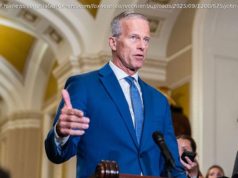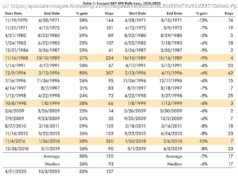Ford, General Motors and Chrysler rely heavily on joint ventures with Chinese firms, shielding them from tariffs.
Tesla could be the U. S. automaker most hurt by a trade war with China, says one analyst.
And the other U. S.-built brands likely to suffer most after that are not American but German, said Barclays analyst Brian Johnson in a note sent Wednesday.
While China is a huge market for Ford, General Motors and Chrysler, all of Detroit’s Big 3 have joint ventures with Chinese companies that, for the most part, shield them from tariffs. GM, for example, assembles in China the vast majority of vehicles it sells there.
Tesla buyers in China, on the other hand, import their Teslas, which means those buyers may have to pay a 50 percent tariff on those vehicles if China keeps its promise to retaliate against currently proposed U. S. tariffs. Currently, imported vehicles in China are subject to a 25 percent tariff.
«The tariff will add an extra premium on top of a vehicle price that was already ahead of the base U. S. price, related to transport costs and duties,» Johnson noted. For instance, he said, a base Model S 100D in the U. S. costs $94,000; the same vehicle in China today costs CNY 931,000 (or ~$148,000. The tariff comes into play on top of those prices.
«And while these steep import tariffs are part of the upper-end luxury market (and in some respects add to the prestige factor for luxury cars), for lower-luxury vehicles than the Model 3 a 50 percent premium would be significant,» the Barclays analyst noted.
Tesla was not immediately available for comment.
Tesla CEO Elon Musk has complained that the current trade rules between the U. S. and China are lopsided and unfair to American companies.
Tesla does have a pretty significant presence in China, and the country is important to Tesla’s balance sheet. The carmaker currently operates an 83,000-square-foot delivery hub in Beijing, with a lease set to expire in April 2020.
An SEC filing also shows China was the second-largest market for Tesla cars by revenue in 2017, after the U. S. And Tesla nearly doubled its revenues in China last year, pulling in $2 billion, compared with $6 billion in the United States and less than $1 billion in Norway. Musk has also talked about building production facilities in China.
For now, Teslas sold in China are potentially at a disadvantage, Johnson said.
Oddly, it’s German automakers that are the next most vulnerable to a U. S.-China trade war. Mercedes-Benz exports some cars to China from its Alabama plant, and BMW sends some cars from its Spartanburg, South Carolina, factory to China. But their exposure is still far lower than Tesla’s, Johnson said. Whereas about 12 to 13 percent of Tesla Model S and X vehicles go to China, only about 2 to 4 percent of Mercedes and BMW cars do.






